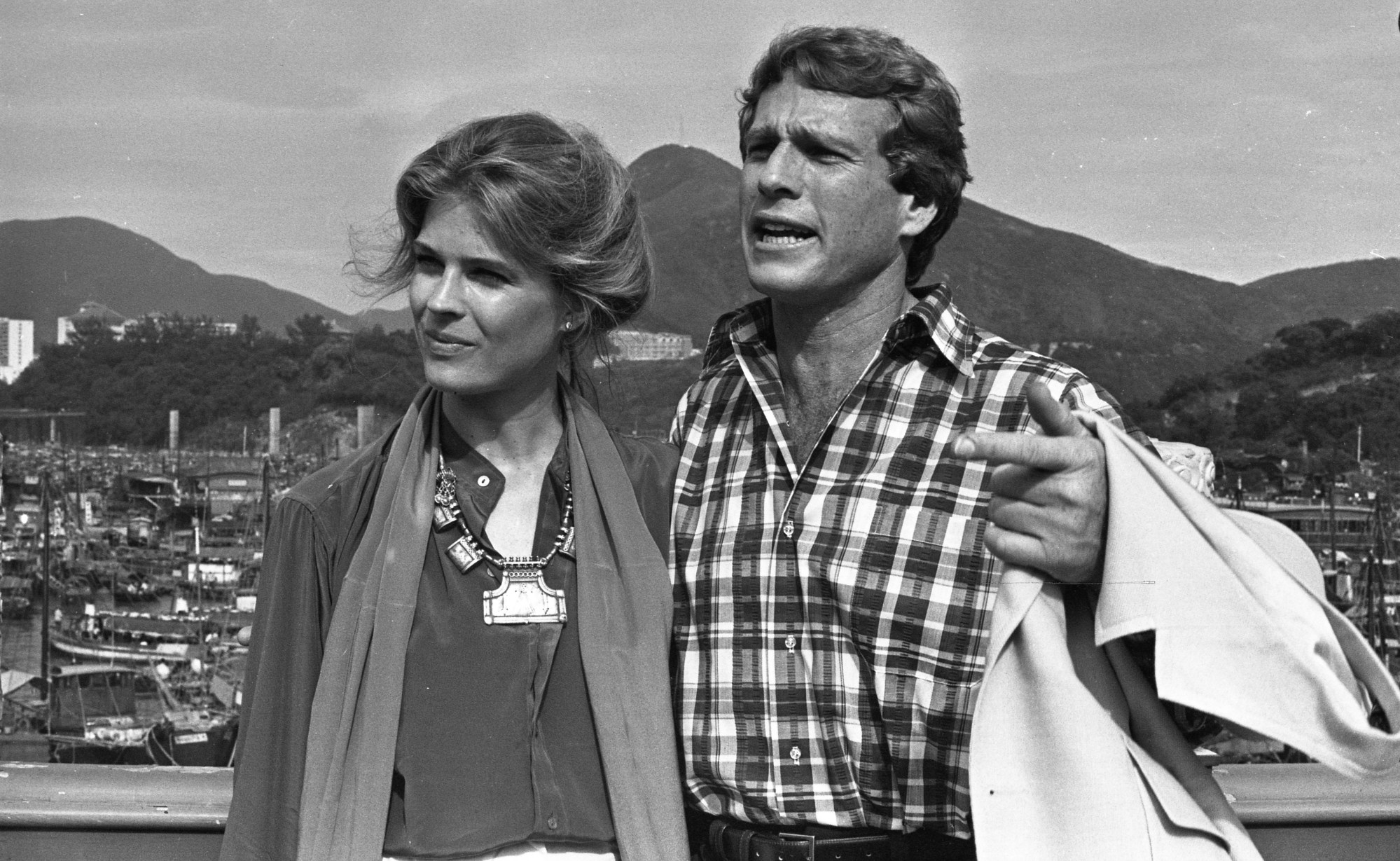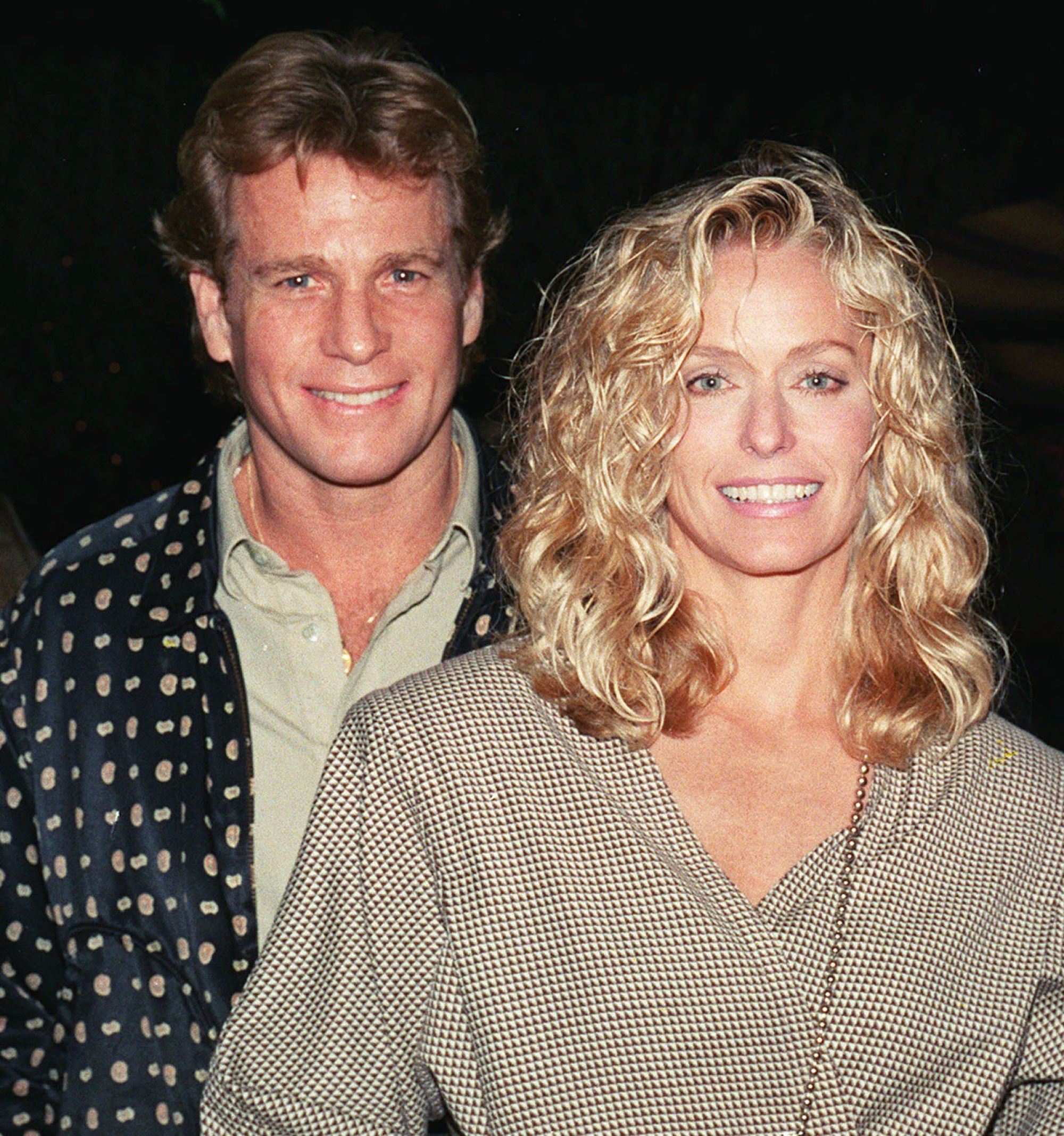“He meant the world to me. I loved him very much and know he loved me too,” Tatum O’Neal told People magazine in a statement. “I’ll miss him forever. and I feel very lucky that we ended on such good terms.”
Ryan O’Neal was among the biggest film stars in the world in the 1970s, working across genres with many of the era’s most celebrated directors including Peter Bogdanovich on Paper Moon and What’s Up, Doc? and Stanley Kubrick on Barry Lyndon. He often used his boyish, blond good looks to play men who hid shadowy or sinister backgrounds behind their clean-cut images.
O’Neal maintained a steady television acting career into his 70s in the 2010s, appearing for stints on Bones and Desperate Housewives, but his long-time relationship with actress Farrah Fawcett and his tumultuous family life kept him in the news.
Twice divorced, O’Neal was romantically involved with Charlie’s Angels star Fawcett for nearly 30 years, and they had a son, Redmond, born in 1985. The couple split in 1997, but reunited a few years later. He remained by Fawcett’s side as she battled cancer, and she died in 2009 at age 62.
Friends star Matthew Perry dead at 54
Friends star Matthew Perry dead at 54
With his first wife, Joanna Moore, O’Neal fathered actors Griffin O’Neal and Tatum O’Neal, his co-star in the 1973 film Paper Moon, for which she won an Oscar for best supporting actress. He had a son, Patrick, with his second wife, Leigh Taylor-Young.
Ryan O’Neal had his own best actor Oscar nomination for the 1970 tear-jerker drama Love Story, co-starring Ali MacGraw, about a young couple who fall in love, marry and discover she is dying of cancer. The film includes the memorable, but often satirised line: “Love means never having to say you’re sorry.”
The actor had at times strained relationships with three of his children, including estrangement from his daughter, squabbles with his son Griffin and a drug-related arrest sparked by a probation check of his son Redmond. The personal drama often overshadowed his later career, although his attempts to reconcile with Tatum O’Neal were turned into a short-lived reality series.
O’Neal played bit parts and performed some stunt work before claiming a lead role on the prime-time soap opera Peyton Place (1964-69), which also made a star of Mia Farrow.

From there O’Neal jumped to the big screen with 1969’s The Big Bounce, which co-starred his then-wife, Taylor-Young. But it was Love Story that made him a film star.
The romantic melodrama was the highest-grossing film of 1970, became one of Paramount Pictures’ biggest hits and collected seven Oscar nominations, including one for best picture. It also won for best music.
After Love Story, O’Neal was considered for seemingly every major leading role in Hollywood. Paramount even pushed for him to to star as Michael Corleone in The Godfather before Al Pacino got the part at the insistence of director Francis Ford Coppola.
O’Neal then starred as a bumbling professor opposite Barbra Streisand in the Bogdanovich 1972 screwball comedy What’s Up, Doc?
Actor Julian Sands confirmed dead, months after vanishing in California mountains
Actor Julian Sands confirmed dead, months after vanishing in California mountains
“So sad to hear the news of Ryan O’Neal’s passing,” Streisand, who also starred with O’Neal in the 1979 boxing romcom The Main Event, posted on Instagram. “He was funny and charming, and he will be remembered.”
The year after What’s Up, Doc? Bogdanovich cast him in the Depression-era con artist comedy Paper Moon.
In it, O’Neal played an unscrupulous Bible salesman preying on widows he located through obituary notices. Daughter Tatum played a trash-talking, cigarette-smoking orphan who needs his help – and eventually helps redeem him.
Although critics praised both actors, the little girl’s brash performance overshadowed her father’s and made her the youngest person in history to win a competitive Academy Award. She was 10 when the award was presented in 1974. (Younger performers such as Shirley Temple have won special Oscars.)

The elder O’Neal’s next major film was Kubrick’s 18th-century epic Barry Lyndon, in which he played a poor Irish rogue who travelled through Europe trying to pass himself off as an aristocrat.
O’Neal then reteamed with Tatum in Bogdanovich’s early Hollywood comedy Nickelodeon (1976). But the film was a flop and they never worked together again. An attempt to capitalise on his Love Story character, Oliver Barrett, with the sequel Oliver’s Story (1978) resulted in another flop.
Father and daughter drifted apart as Tatum grew older, with the elder actor learning about his daughter’s marriage to tennis player John McEnroe by a belated telegram, Ryan O’Neal wrote in a 2012 book about his relationship with Fawcett.
O’Neal’s career cooled further in the 1980s with the emerald heist drama Green Ice (1981) and the 1984 comedy Irreconcilable Differences, in which he played a busy father in an unhappy marriage whose daughter, played by 9-year-old Drew Barrymore, tries to divorce her parents.
By 1989, O’Neal began accepting more supporting roles with the film Chances Are. He began a second career as a character actor, playing a husband who hires a hitman to kill his wife in Faithful (1996) and a mysterious tycoon in the blackmail comedy Zero Effect (1998).
By then his relationship with Fawcett had ended, although they remained close and eventually rekindled their romance in the 2000s.
Stay connected with us on social media platform for instant update click here to join our Twitter, & Facebook
We are now on Telegram. Click here to join our channel (@TechiUpdate) and stay updated with the latest Technology headlines.
For all the latest World News Click Here
